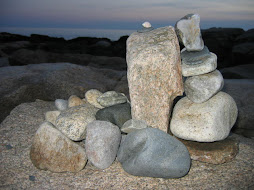He delivered.
And no one was listening.
The liner notes to "Scott 4" contain a quote from Albert Camus, "A man's work is nothing but this slow trek to rediscover, through the detours of art, those two or three great and simple images in whose presence his heart first opened."
Twelve years earlier when Scott was an American teenager crooning silly love songs underneath a pompadour, Ingmar Bergman's "The Seventh Seal" was released to international acclaim. Perhaps Walker's teenage heart opened upon seeing it because he opens "Scott 4" with his own version, a lyric masterpiece that somehow rhymes the entire film to a great melody.
Walker has said that he was most excited about moving to Europe so that he could be in the midst of European cinema, and that one of his heroes was unquestionably Ingmar Bergman. This album, for Walker, was not the tail end of a period of work, it was to be the beginning. He was finally out from under the shadow of "The Sun Ain't Gonna Shine Anymore", he'd shaken off the silly trappings of fabricated boy-band fame and now he was about to declare himself as a writer for the ages.
The tragedy is that he did so in such definitive fashion that he alienated whatever fan base he had left. His musical vision is uncompromising, academic, intellectual and foreboding. In an era when male sex symbols in music were delving into the blues and allowing audiences vicarious hedonistic pleasure, Walker was writing about fascism, existential angst, the political fallout in post Holocaust Europe and the magnification of personal pain by larger societal forces.
Not exactly "come on baby light my fire".
To wit, listen to "The Seventh Seal". If you haven't seen the film, know that this is a spoiler of the most drastic sort since it somehow tells the entire movie in five minutes.
In some other universe, this album would have sent Walker into the stratosphere of worldwide success. Instead it was a penultimate swan song of sorts, and it's failure meant that it would be his only all-original album until 1984's "Climate of Hunter".
This gives the music a tragic tint, the slight tinge of what might have been, what never was.


No comments:
Post a Comment